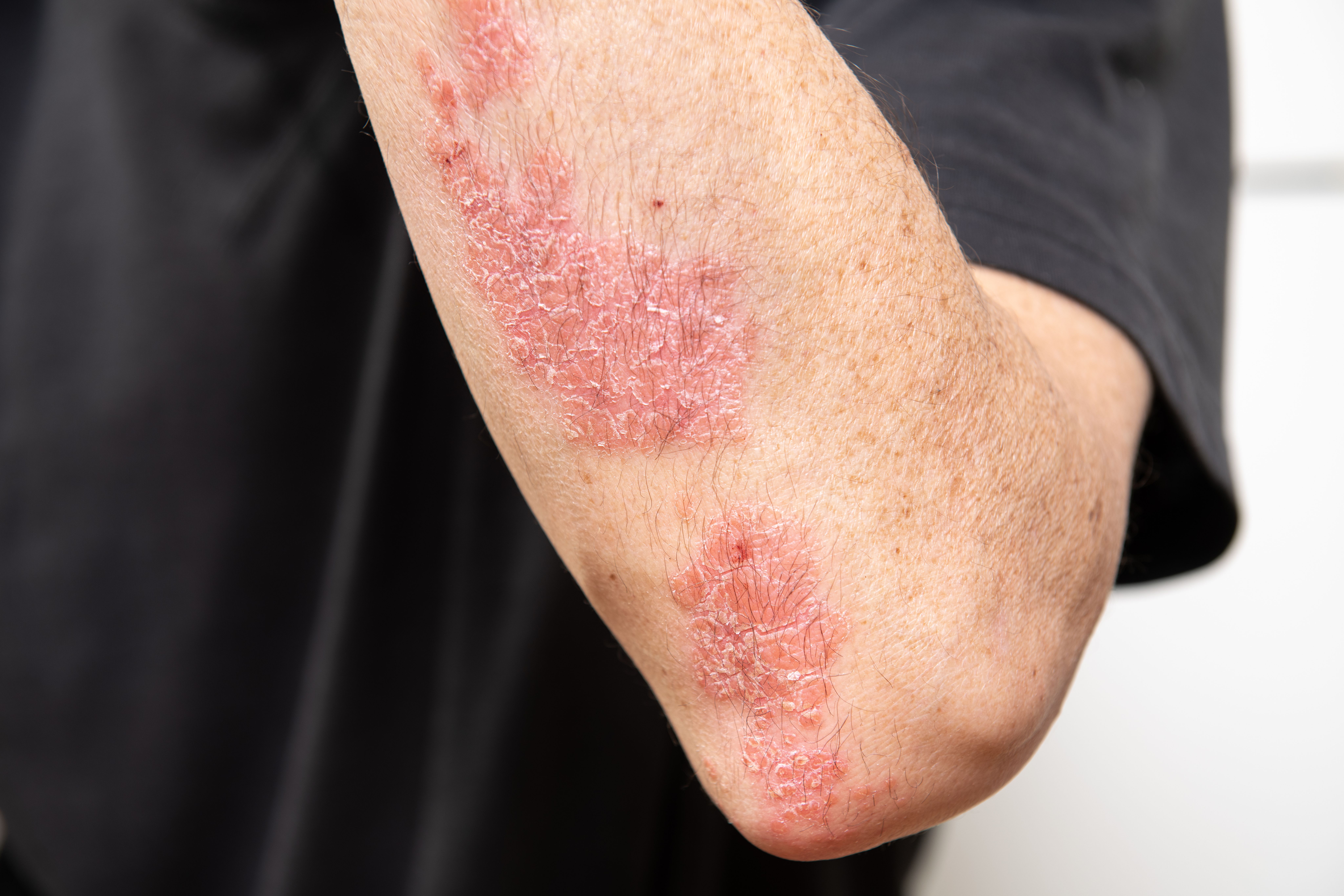- Center on Health Equity & Access
- Clinical
- Health Care Cost
- Health Care Delivery
- Insurance
- Policy
- Technology
- Value-Based Care
Patients With Higher Disease Burden, Lower HRQoL More Likely to Switch to Biologic Therapies
Researchers found patients reporting greater disease burden and lower health-related quality of life (HRQoL) are more likely to switch to biologic therapies, regardless of clinician-rated disease severity.
This article was originally published on Dermatology Times®.

Treatment switching in moderate to severe plaque psoriasis, especially from oral nonbiologic to biologic therapies, is common and economically burdensome due to increased pharmacy costs.1 Drivers of switching include lack of efficacy, adverse events, and unmet treatment targets defined by clinician-assessed disease severity.2 However, the role of health-related quality of life (HRQoL) and patient-reported disease burden in these decisions is less understood.3 A recent study evaluated the association between patient-reported outcomes and switching from nonbiologic to biologic therapies among biologic-naive patients in the CorEvitas Psoriasis Registry.4
“We found that biologic-naive patients with plaque psoriasis who reported greater disease burden (measured by VAS scales for itch, skin pain, and fatigue, and by the PGA-VAS) and lower HRQoL (measured by DLQI and WPAI) were significantly more likely to switch to biologic therapy than those who reported lesser disease burden and higher HRQoL,” researchers wrote. “This association was observed even in patients who had a low degree of clinician-rated skin involvement. Nonbiologic therapies that effectively address patient-reported disease burden and quality of life in addition to clinician-rated skin clearance may reduce treatment switching in patients with plaque psoriasis.”
The CorEvitas Psoriasis Registry is a multicenter, observational database including adult patients with physician-diagnosed psoriasis in the US and Canada. The study analyzed biologic-naive patients who had used nonbiologic systemic therapy for at least 28 days prior to enrollment between April 2015 and August 2022. HRQoL and disease burden were assessed using tools such as the Dermatology Life Quality Index (DLQI), visual analog scales (VAS) for itch, skin pain, and fatigue, and the Work Productivity and Activity Impairment (WPAI) questionnaire. Clinician-assessed disease severity was measured via the Psoriasis Area and Severity Index (PASI), body surface area (BSA) involvement, and Investigator’s Global Assessment (IGA). Multivariable logistic regression models adjusted for patient demographics, disease characteristics, and clinician-assessed severity to estimate odds of switching to biologics.
Of 848 eligible patients, researchers reported 38.1% switched to biologic therapy within 45 days of enrollment. They found patients who switched had greater BSA involvement, higher PASI scores, and worse patient-reported outcomes compared to those who did not. Adjusted analyses revealed significantly higher odds of switching associated with greater disease burden as measured by DLQI (OR, 1.55; 95% CI, 1.08–2.23; P = .017), VAS itch (OR, 2.14; 95% CI, 1.49–3.08; P < .001), VAS skin pain (OR, 2.18; 95%, 1.45–3.29; P < .001), and WPAI activities impairment (OR, 2.51; 95% CI, 1.72–3.65; P < .001). Importantly, the study reported these associations persisted even in patients with low PASI scores (≤2 or ≤4), highlighting the role of patient-reported outcomes independent of clinician-rated disease severity.
This study emphasizes the significant influence of patient-reported disease burden and HRQoL on treatment switching in plaque psoriasis. Researchers found even patients with low clinician-assessed severity may switch to biologics due to unaddressed symptoms such as itch and fatigue. These findings underscore the need for treatment strategies that prioritize symptom control and HRQoL alongside clinical skin clearance, potentially reducing the economic burden associated with frequent treatment changes.
Overall, the study found biologic-naive patients with plaque psoriasis reporting greater disease burden and lower HRQoL are more likely to switch to biologic therapies, regardless of clinician-rated disease severity. Researchers suggested optimizing nonbiologic systemic therapies to address patient-reported outcomes may delay switching and improve overall care efficiency. They stated further longitudinal research could clarify strategies for better alignment of patient and clinician treatment goals.
References
- Wu JJ, Pelletier C, Ung B, et al. Real-world switch patterns and healthcare costs in biologic-naive psoriasis patients initiating apremilast or biologics. J Comp Eff Res. 2020;9(11):767-779. doi:10.2217/cer-2020-0045
- Honda H, Umezawa Y, Kikuchi S, et al. Switching of biologics in psoriasis: Reasons and results. J Dermatol. 2017;44(9):1015-1019. doi:10.1111/1346-8138.13860
- Gordon KB, Armstrong AW, Menter MA, Wu JJ. Treating to target-A realistic goal in psoriasis?.Semin Cutan Med Surg. 2018;37(2S):S44-S47. doi:10.12788/j.sder.2018.010
- Patel V, Park SH, Zhong Y, et al. The association between patient-reported disease burden and treatment switching in patients with plaque psoriasis treated with nonbiologic systemic therapy. Psoriasis (Auckl).2024;14:167-174. Published 2024 Nov 28. doi:10.2147/PTT.S478352
The Breakdown: Breast Cancer Research Awareness Day
August 19th 2025Breast cancer is the second most common cancer among women and the second leading cause of cancer-related deaths among women in the US. In light of Breast Cancer Research Awareness Day, The American Journal of Managed Care® breaks down the most recent advancements in breast cancer prevention, screening, and therapies.
Listen
Psoriasis as an Inflammatory Disease, and What’s Changed Over Time
August 3rd 2021August is National Psoriasis Awareness Month, and on this episode of Managed Care Cast, we bring you an excerpt of an interview with a New Jersey dermatologist about the changing concept of psoriasis as more than just a skin disease.
Listen
